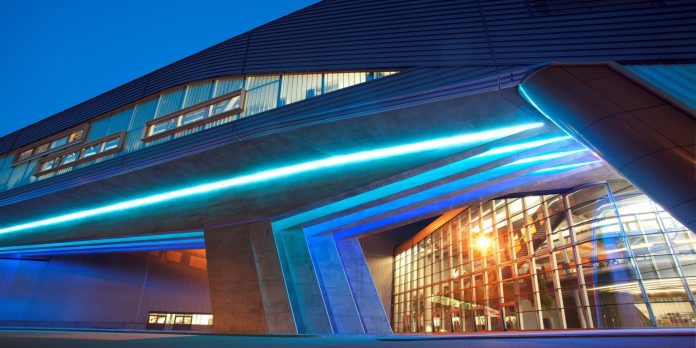Deutsche Telekom has installed a dual-slice private LTE ‘campus network’, hived off its public LTE network, at a BMW plant in Leipzig. Ericsson has supplied the networking gear for the project.
The German operator said the deployment marks its fourth such campus installation. It has deals as well with German lighting company OSRAM, German car parts maker ZF Group, and the RWTH research institute at Aachen University.
Via its subsidiaries and partners, Deutsche Telekom has also installed dual-slice LTE setups using publicly-licensed bands with automotive component supplier BorgWarner, at its site in Oroszlány in Hungary, the Technical University of Ostrava in Austria, and the Graz University of Technology, also in Austria.
Swedish vendor Ericsson has been involved in each case; all deployments, if green-lighted in their commercial settings, can be upgraded to 5G, the company has stated.
The new BMW arrangement does not utilize the privately-licensed 3.7-3.8 GHz band, initially, which the German government has made available to local enterprises for standalone network operations running independently of public LTE and 5G networks.
However, Deutsche Telekom said it is working with Ericsson, its preferred go-to-market supplier for industrial LTE and 5G gear, on a 5G dual-slice solution that integrates the 3.7-3.8 GHz “industry spectrum”.
They are also working on an offer for private 5G networks without connection to the public network, it said. Joint customer tests are planned for later in the year.
These new hybrid private 5G networks will incorporate higher control and reliability functions, as set down in the ultra-reliable low-latency communications (URLLC) specifications for SA 5G in Releases 16 and 17, due later in 2020 and in 2021, respectively. On paper, URLLC promises latency of 1ms.
“The 5G architecture supports for example applications that require an ultra-short response time… These are services that require the shortest response times and must not fail,” said Deutsche Telekom.
Deutsche Telekom said of the existing dual-slice scenario that in-house industrial connectivity and regular mobile working will be supported on private and public slices, respectively, without interference in either case.
“In addition to the private campus network, the public network will transmit the same signal strength. This ensures a perfect connection even for terminal devices that are not allowed to transmit in the private network – for example, smartphones of customers or suppliers,” it explained.
Last month, rival car-maker Audi, owned by Volkswagen, confirmed it is working with Ericsson on URLLC trials in privately-licensed spectrum at its P-Labs facility, also in Germany. The pair have been testing localised versions of LTE and 5G for vehicle production in lab conditions with Swedish vendor Ericsson since August 2018.
Audi told Enterprise IoT Insights last year it was considering both privately owned and operated LTE and 5G networks for its manufacturing plants, and also hybrid ‘campus’ networks with local operators.
It seems likely its take is also working-up a dual-slice solution that dovetails with customers’ enterprise holdings at 3.7-3.8 GHz, and an independent private SA 5G offer industrialists can plug-and-play within their facilities.
BMW is evaluating a number of private networking models for 5G at its factories, globally, although it has not confirmed yet that it has applied for or received a licence at 3.7-3.8 GHz in Germany.
“The group is preparing to set up local, private 5G networks at its plants in Germany… The long-term aim is to establish 5G networks at all BMW Group plant locations worldwide,” the company has stated, citing virtual and augmented reality, wide-scale networking of machines, and autonomous logistics fleets as prime 5G use cases.
Its joint venture in China, BMW Brilliance Automotive (BBA), claims to be the first automobile manufacturer to enable full 5G wireless coverage at all its plants. BBA’s 5G deployment is with China Unicom and China Mobile, and has grown out of a pilot at three plants in Shenyang, in China’s northeast Liaoning Province.
Last week, German airline Lufthansa, via its technical services unit Lufthansa Technik, confirmed it was running twin trials of private standalone (SA) 5G with Nokia and Vodafone using its own 3.7-3.8 GHz spectrum holding.
Vodafone Germany’s involvement in one of the two Lufthansa tests remains somewhat unclear, as Lufthansa Technik has said it is operating the networks internally, as well as licensing the bandwidth for them.

